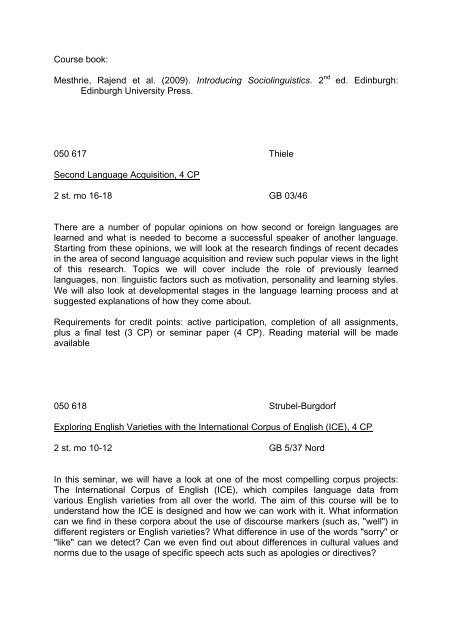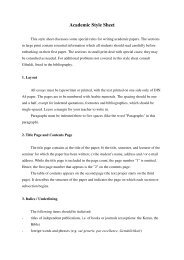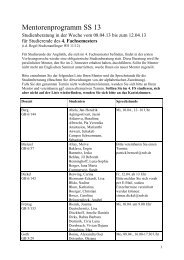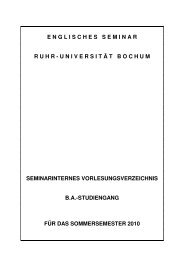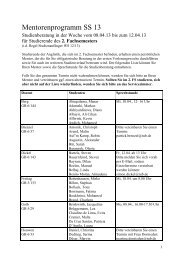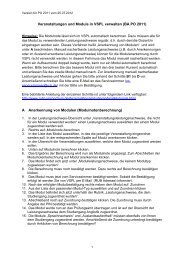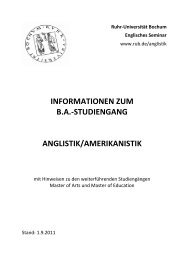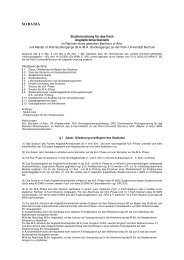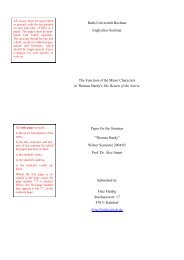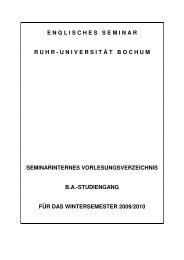universit ä tbochum seminarinternes vorlesungsverzeichnis ba-st
universit ä tbochum seminarinternes vorlesungsverzeichnis ba-st
universit ä tbochum seminarinternes vorlesungsverzeichnis ba-st
You also want an ePaper? Increase the reach of your titles
YUMPU automatically turns print PDFs into web optimized ePapers that Google loves.
Course book:<br />
Me<strong>st</strong>hrie, Rajend et al. (2009). Introducing Sociolingui<strong>st</strong>ics. 2 nd ed. Edinburgh:<br />
Edinburgh University Press.<br />
050 617 Thiele<br />
Second Language Acquisition, 4 CP<br />
2 <strong>st</strong>. mo 16-18 GB 03/46<br />
There are a number of popular opinions on how second or foreign languages are<br />
learned and what is needed to become a successful speaker of another language.<br />
Starting from these opinions, we will look at the research findings of recent decades<br />
in the area of second language acquisition and review such popular views in the light<br />
of this research. Topics we will cover include the role of previously learned<br />
languages, non lingui<strong>st</strong>ic factors such as motivation, personality and learning <strong>st</strong>yles.<br />
We will also look at developmental <strong>st</strong>ages in the language learning process and at<br />
sugge<strong>st</strong>ed explanations of how they come about.<br />
Requirements for credit points: active participation, completion of all assignments,<br />
plus a final te<strong>st</strong> (3 CP) or seminar paper (4 CP). Reading material will be made<br />
available<br />
050 618 Strubel-Burgdorf<br />
Exploring English Varieties with the International Corpus of English (ICE), 4 CP<br />
2 <strong>st</strong>. mo 10-12 GB 5/37 Nord<br />
In this seminar, we will have a look at one of the mo<strong>st</strong> compelling corpus projects:<br />
The International Corpus of English (ICE), which compiles language data from<br />
various English varieties from all over the world. The aim of this course will be to<br />
under<strong>st</strong>and how the ICE is designed and how we can work with it. What information<br />
can we find in these corpora about the use of discourse markers (such as, "well") in<br />
different regi<strong>st</strong>ers or English varieties? What difference in use of the words "sorry" or<br />
"like" can we detect? Can we even find out about differences in cultural values and<br />
norms due to the usage of specific speech acts such as apologies or directives?


